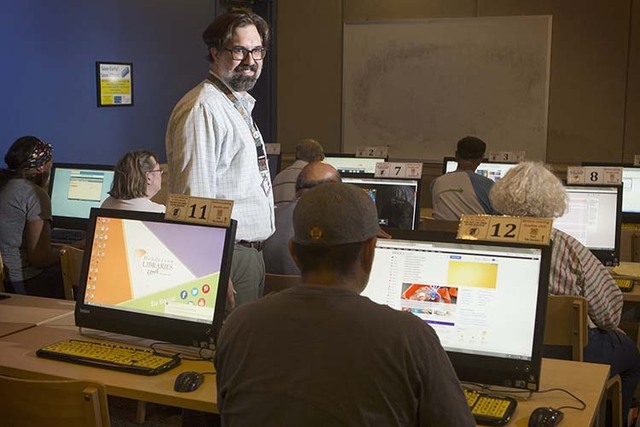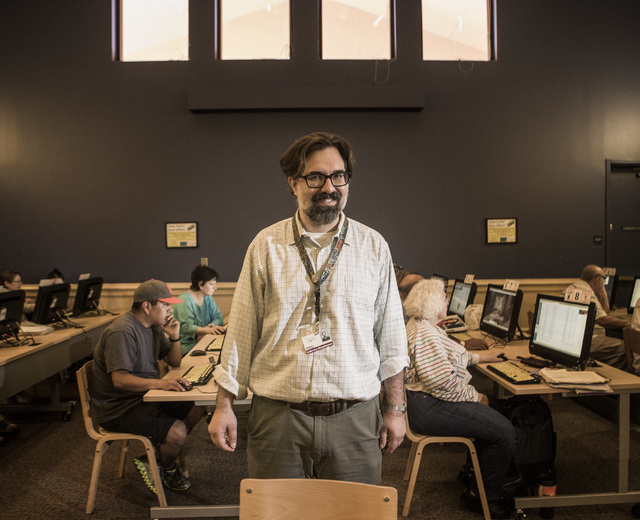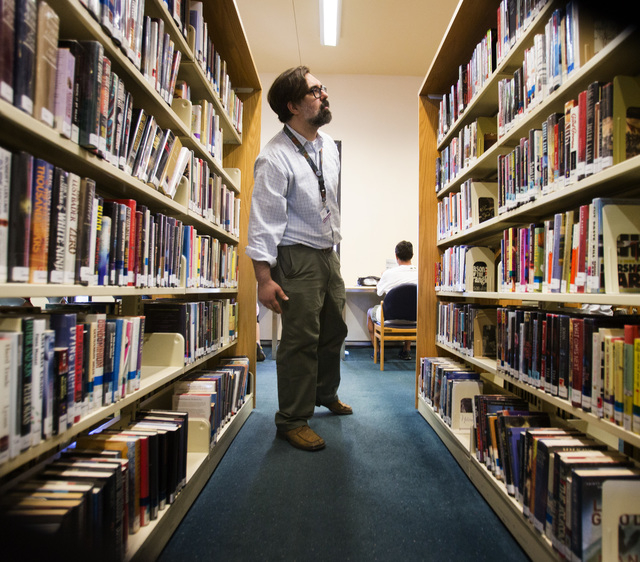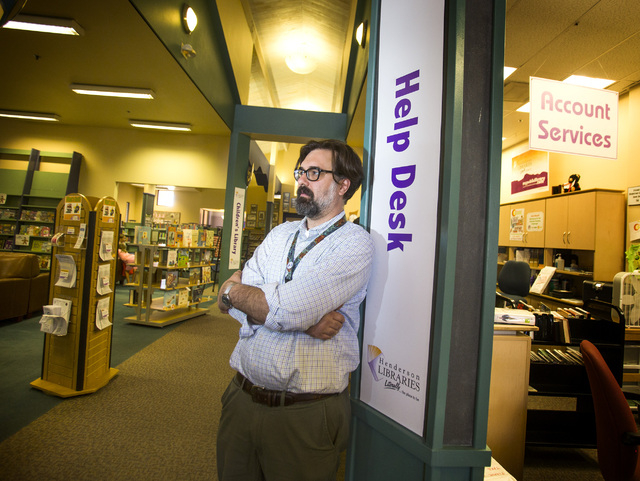Grant could lay groundwork for ‘makerspace’ in Henderson library
Dusty, hardcover books and computers with Internet access don’t make up the bones of the modern-day library.
In Nevada and other states, librarians say the role of libraries is expanding from a quiet reading and research zone to a vibrant space for community engagement.
Using a recently awarded $85,770 federal grant, Stephen Platt, branch manager for the Green Valley Library in Henderson wants to put the information in books to use by organizing hands-on training in Science, Technology, Engineering and Mathematics, known as STEM in education policy discussions.
“STEM education is a really big national priority,” Platt said. “A lot of employers out there are looking for people with specialized skills.”
In 2013, 48 percent of entry-level jobs requiring a bachelor’s degree or higher were in STEM fields, but only 29 percent of bachelor’s degree graduates earned STEM degrees, according to a report by Burning Glass Technologies, a company that analyzes the labor market.
Part of Platt’s vision is to cultivate a “makerspace” or “hackerspace” atmosphere within the library where people meet to collaborate on various hobby projects that usually have a scientific or technological focus. In these spaces, it’s not uncommon to find tools such as laser cutters, soldering irons and 3-D printers — machines that stack layers of material to form three-dimensional models.
Even after the grant money runs out, the hope is that the interest and momentum will continue, Platt said.
The idea of marrying makerspace culture with library tradition has been around since at least 2011. Lauren Britton, former librarian at Fayetteville Free library in Fayetteville, N.Y., would know; she’s a pioneer of the movement. While working on her master’s degree in library and information science at Syracuse University, Britton developed a proposal to incorporate what’s considered the first makerspace at a public library.
The makerspace is a natural extension of the library, Britton said.
“Libraries are not about reading,” said Britton. “I think that librarians and community members have confused our tools with our reason for being.”
To be literate doesn’t mean to just read and write, Britton said, it means having the skills to be an active participant in society.
“If we are in the book business, then we are probably going out of business,” said Britton.
Here in Nevada, a college library had dismal visitor rates before switching its focus.
Before allocating room for a makerspace, the DeLaMare Science &Engineering Library at the University of Nevada, Reno drew around 25 people per day. Now up to 200 people come in during its busiest hour, according to the library.
Shelves of underutilized books were moved into reserves to free up room for a workspace. The library also has various tech-oriented equipment available for checkout, including a pair of Google Glass hardware and a virtual reality headset called Oculus Rift.
Libraries are having an identity crisis, said Erich Purpur, DeLaMare’s geographic information systems librarian.
“The idea that a librarian is someone who shushes people and checks things out and answers reference questions is on the way out,” said Purpur.
At the present, Platt’s desire to have a full-time makerspace is stuck in the dreaming phase, hindered by cost and a lack of space.
About 45 percent, or $38,450, of the grant will pay for new library materials with a STEM focus. The rest of the money will go toward coordination of programs, equipment for workshops and travel and STEM training for librarians.
After funding from the grant kicked in last month, all three Henderson libraries held simultaneous science-themed events to promote STEM topics. Las Vegas Hackerspace SYN Shop helped organize the event and led activities involving 3-D printer demonstrations, responsive lighting displays and deconstruction zones where kids could take apart electronics to discover what’s inside.
From January until June of next year, Platt plans for the libraries to host 20 to 25 free, all-ages classes in seven areas of concentration: physics, hardware, mechanical engineering, circuits, wind energy, solar energy and sensors.
The goal is for participants to take something home that they made using what they learned in class, Platt said.
Contact Alex Corey at acorey@reviewjournal.com or 702-224-5562. Find him on Twitter: @acoreynews.





















